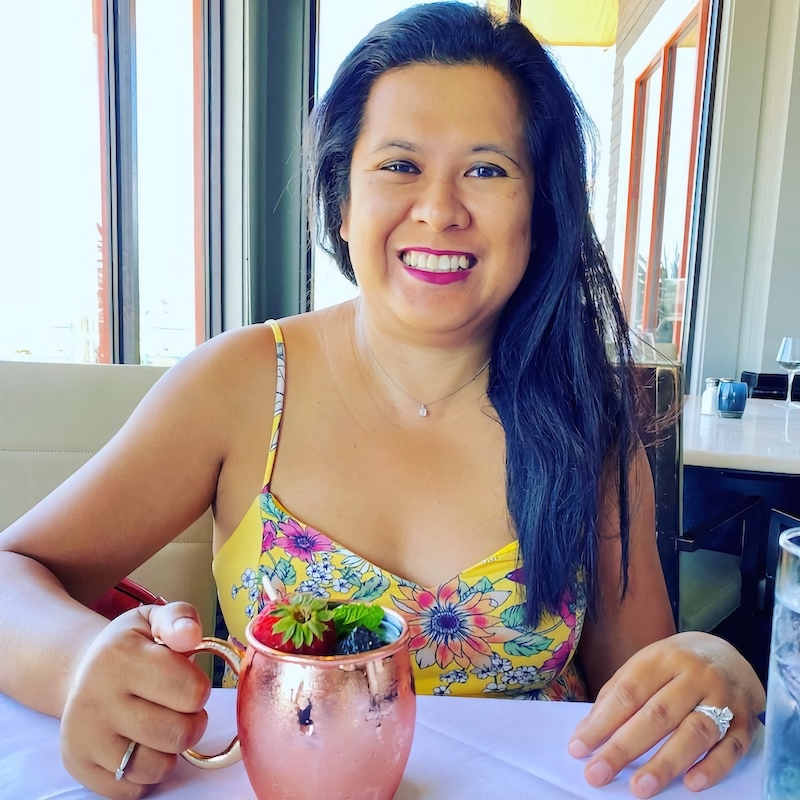Student Blog
WOSC 2022: Redefining Inclusion Towards Social Transformation ⟩
September 12, 2022, by Global Initiatives Team
By Abby Khou, MA ’23
The inaugural World Occupational Science Conference was a gathering of occupational scientists, occupational therapy students, practitioners and educators, and members of the interdisciplinary world who have dedicated their lives to the work of social transformation through the knowledge from the body of work of Occupational Scientists. Held at the Sheraton Wall Vancouver Centre in Vancouver, British Columbia, one of the featured speakers at WOSC 2022 was Dr. Sridhar Venkatapuram, Associate Professor in Global Health and Philosophy at King’s College London and Deputy of King’s Global Health Institute and Director of Global Health Education. Dr. Venkatapuram spoke about the importance of values in science and promoting a capabilities approach that emphasizes quality of life, among other themes that set the tone for conference. Dr. Lilian Magalhães was another featured speaker, and is an adjunct professor at Federal University of São Carlos, Brazil and Associate Professor at Western University in Canada where she is Professor Emeritus. She highlighted her lifelong work in Occupational Science, her familial roots, and the commitment of Occupational Science to social transformation. The inaugural event was hosted by the University of British Columbia Occupational Science and Occupational Therapy and the International Society for Occupational Science.
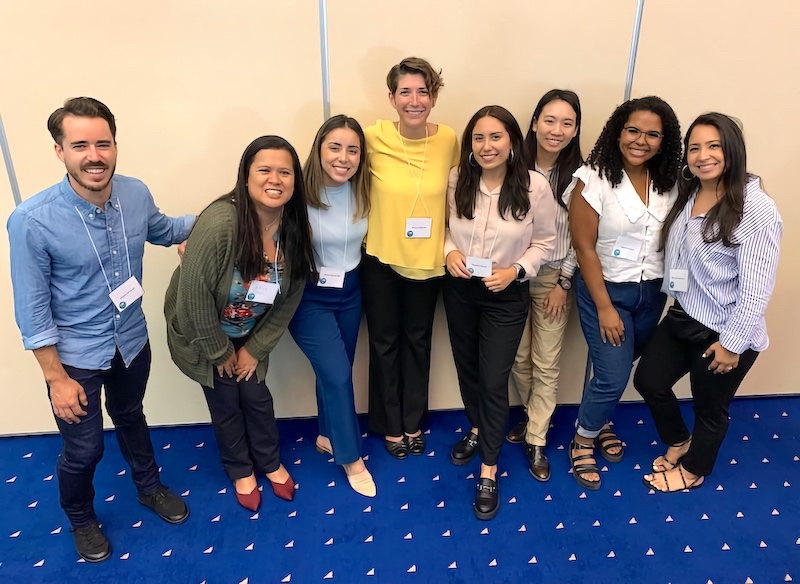
Adam Strizich, Abby Khou, Silvia Hernandez, Dr. Rebecca Aldrich, Daniela Flores, Yen Wen Pan, Kayla Brown, Monica Martinez
Our very own Dr. Rebecca Aldrich, Chair of the International Society of Occupational Science, along with Lisette Farias, Debbie Laliberte Rudman, Lilian Magalhães, Nick Pollard, and Roshan Galvaan, led a dialogic session entitled: Promoting an ‘unconference’ space for transformation of occupational science through critical dialogue. According to Farias et al. (2022), an “unconferencing” approach “prioritizes participation, reflection, and dismantling presenter-attendee hierarchies” (p. 4). By sitting in two concentric circles, the outer circle was able to actively listen as the inner circle addressed the question prompts and verbalized their thoughts. Participants spoke about Occupational Therapists and Occupational Scientists working hand in hand to achieve social change, the need for interdisciplinary involvement, and breaking away from traditional modes of communication such as research, to more grassroots initiatives such as those involving social media.
As a USC Chan second-year master’s student, a mother to a 6-year-old diagnosed with ASD and first-time conference attendee, I appreciated the themes of inclusion, play as occupation, belonging and the access of children to play and play spaces and the overarching theme of mobilization towards social transformation. There were a few presentations that particularly struck me, and further ignited my desire to advocate for a redefined sense of inclusion, the promotion of belongingness within the ASD community, and the awareness of play as occupation.
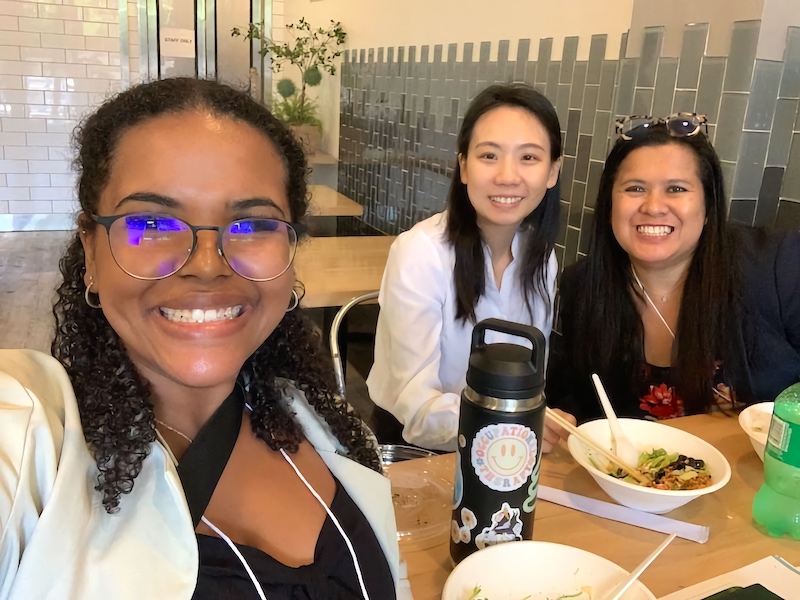
Kayla Brown, Yen Wen Pan, Abby Khou
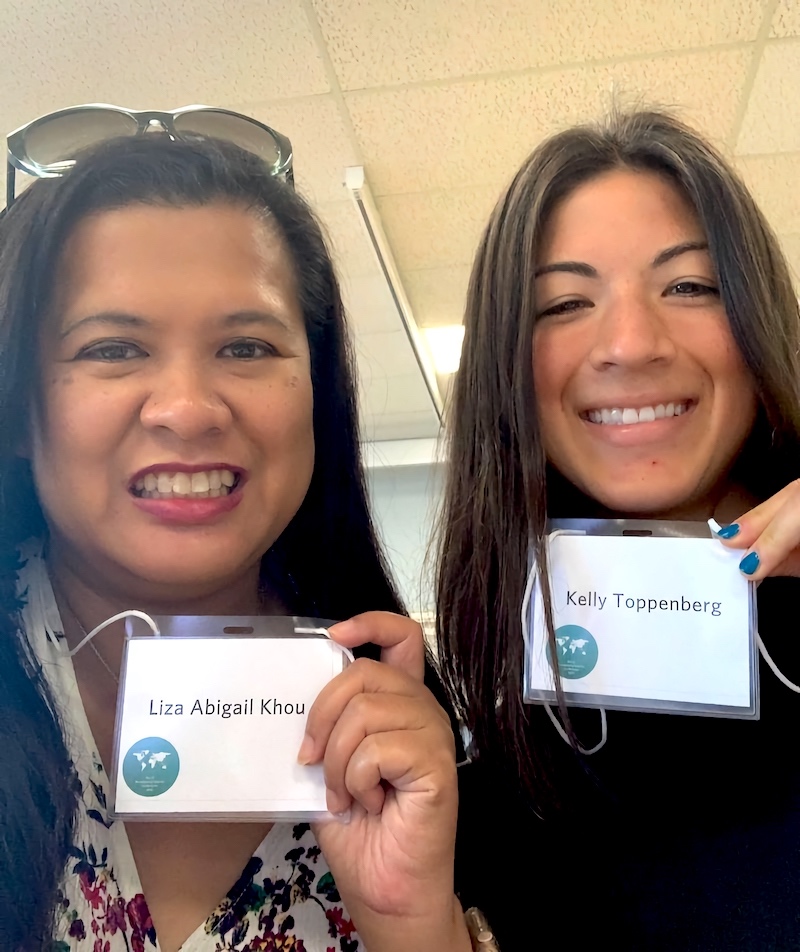
Abby Khou, Kelly Toppenberg
The passionate quality of the presentations on belongingness sometimes included tears, as presenters remembered their lived experiences of being a sibling to a disabled family member, or losing one’s cultural identity in the process of migration. I myself thought of my son Ethan while viewing “The Belonging Project: Conditions that support belonging for people with intellectual and developmental disabilities” presented by Paige Reeves, David McConnell and Shanon Phelan. I couldn’t help but share my own experiences as a member of the special needs parents community, sometimes being caught up in the pursuit of “services,” filling up my son’s schedule with therapy and appointments. “The Belonging Project” made me stop and think: does inclusion also result in exclusion if our idea of inclusion is for children to be included in manufactured spaces that we have created for them? Must we take away the agency of disabled children and plan out their days for them without consideration of where they truly want to be and who they desire to connect to? Is there a need to redefine the theory surrounding inclusion, mobilizing to translate into practice as we begin to chip away at the iceberg of social transformation? Reeves began her presentation quoting Reinders: “We create space and include people with [intellectual disability] as citizens . . . but do we also include them in our lives as human beings?”
The very definition of inclusion was questioned across different related presentations. The idea of having a “façade of inclusion,” that is, convincing ourselves as practitioners and caregivers of individuals with disabilities, that if we complete our checklists of the things we must do to advocate for our children’s inclusion, then our work is done. Comparing the façade of inclusion to the actual experience of being included was discussed in Paige Reeves, David McConnell and Shanon Phelan’s presentation: “The (radical) role of belonging in expanding and shifting understandings of social inclusion.” The Occupational Science perspective that the team was advocating for was a “paradigm shift” into a “meaningful involvement of disabled children’s voices.” What comes to mind is pediatric interventions that are child-led, respectful of families’ perspectives and culture, and the act of simply and truly listening in however way possible to the children when they communicate with us whether by verbal or by behavioral expression.
There is so much more to unpack from WOSC 2022 that I may not be able to express in this medium. I attempted to encapsulate such a wide and varied experience in the blog medium, but not quite able to represent all the meaningful experiences that I had at WOSC 2022. I had so many great and profound conversations and met so many wonderful people. As I moved from the conference back into my everyday life in my intersectional roles, I was filled with so many great ideas, a desire for social transformation and a further igniting of my passion for Occupational Science and Occupational Therapy. Maybe I left with more questions than answers, but that can be a good thing. Questions can lead to answers and answers can lead to solutions, and hopefully, continuing change.
References
Farias, L., Aldrich, R., Laliberte Rudman, D., Magalhães, L., Pollard, N., & Galvaan, R. (2022, August). Promoting an ‘unconference’ space for transformation of occupational science through critical dialogue [Dialogic session]. World Occupational Science Conference 2022, Vancouver, BC, Canada.
Reeves, P., McConnell, D., & Phelan, S. (2022a, August). The belonging project: Conditions that support belonging for people with intellectual and developmental disabilities [Paper presentation]. World Occupational Science Conference 2022, Vancouver, BC, Canada.
Reeves, P., McConnell, D., & Phelan, S. (2022b, August). The (radical) role of belonging in expanding and shifting understandings of social inclusion [Paper presentation]. World Occupational Science Conference 2022, Vancouver, BC, Canada.
⋯
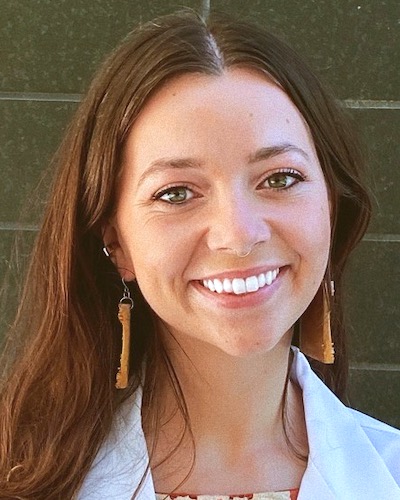
From Patient to Therapist: Rediscovering Occupational Therapy ⟩
September 9, 2022, by Leah
Fieldwork Living in LA What are OS/OT?
I first learned about occupational therapy from my cousin’s girlfriend, who was an occupational therapist. I was ten years old, undergoing chemotherapy for liver cancer, and spent most of my time in hospitals and at home. Besides feeling fatigued and nauseous, I had lost many of my occupational identities, such as being a student, athlete, and friend. My cousin’s girlfriend began to visit my home to teach me how to paint, and we would talk about schoolwork and life. I looked forward to her visits, motivating me to get up from bed, and I received a lot of comfort in starting to see myself as an artist. Following treatment, this experience stuck with me as I became involved in an oncology summer camp that uses occupations to provide healing and respite to impacted families.
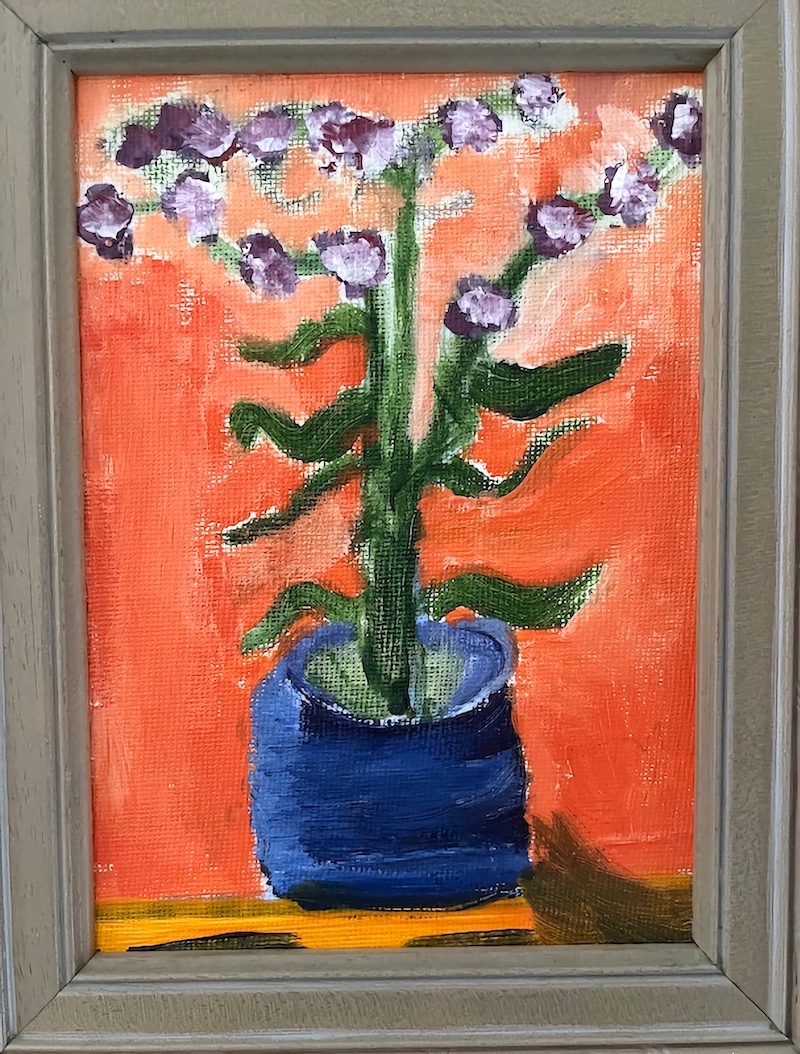
Here is a painting I made during one of my informal OT sessions with my cousin’s girlfriend
Years later, I loved studying psychology, neuroscience, and philosophy during my undergraduate years. Due to my connection with cancer treatment, I continued to be drawn to health care positions and enjoyed my health science classes. Still, I had no idea what career I wanted to pursue.
Following college, I began working in permanent supportive housing. Because of my previous work in research, I thought I might want to be a clinical psychologist. I fell in love with working 1:1 with people and using occupations as a therapeutic means. Some activities I participated in with the residents included shared meal times, grocery shopping, laundry, resource seeking, dog watching, visiting the zoo, birthday parties, and bowling. My favorite part of the role was spending mornings in conversation and sitting in the lobby with residents. I became closest with the public health nurses in the building, and it continued to make me consider working in health care.
Because I was still pursuing clinical psychology, I began working as a research coordinator. While working at a Multiple Sclerosis clinic, I learned many things about myself, both good and bad. I loved working with the participants and often would talk with participants on the phone for far longer than necessary while completing assessments. I loved collaborating with an interdisciplinary team in the clinic when working with participants. I also learned that while researching was essential and exciting, I did not want to make research my career. I had a hard time in an office job and felt like jumping out of my seat every day.
At the beginning of the pandemic, I had a long conversation with my good friend from college who was currently at USC’s OT program. I shared all my doubts and hesitations about pursuing clinical psychology, and I realized my friend was describing my dream job. He discussed his love of occupational therapy’s holistic approach and the connections he had built during his fieldwork experiences. He then told me how he was about to begin his doctoral residency in an oncology hospital! I was overwhelmingly happy for him and a little jealous, so I decided to learn more about pursuing occupational therapy.
I then spoke with several occupational therapists over zoom/phone (hello pandemic!) about their roles as occupational therapists in hospitals, community mental health, and school settings. During every conversation, I felt myself light up and easily connect with the therapists about what I valued about working with people. Importantly, every therapist expressed satisfaction and pride in their work and the longevity in which they have enjoyed their job. I was drawn to the flexibility and scope of the profession. I reflected on my occupational identity and how vital my cousin’s girlfriend was to me during my medical treatment.
And now, I love my experience studying to be an occupational therapist. I spent this last summer in an inpatient acute adult setting. Next summer, I have my dream fieldwork, working in pediatric oncology at St. Jude’s Hospital in Memphis, TN!
⋯
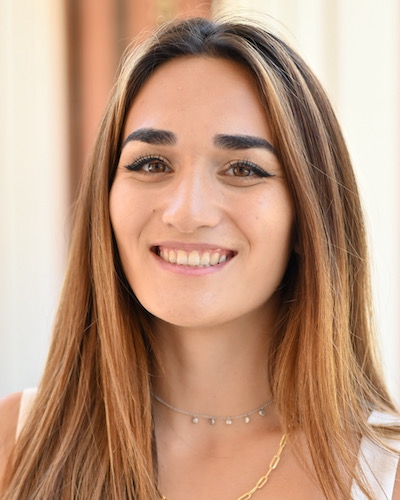
Thank You, Occupational Therapy ⟩
August 22, 2022, by Leah Mary
Classes Fieldwork What are OS/OT?
The first time I heard about occupational therapy was during my Freshman Year (2016) in my seminar class with Dr. Jesús Díaz. One of our classes was dedicated to introducing us to occupational therapy. At the time, I was volunteering in different research labs studying the brain and thought I wanted to get my PhD in Neuroscience. I didn’t want to pursue occupational therapy (I know, what was I thinking!?).
Fast forward to the end of my Sophomore Year, I was pretty unhappy. While I found the research fascinating, something was missing. Most of the time, I was behind the computer, not interacting with individuals (and I’m a huge extrovert). I felt utterly lost. This was around the same time my grandmother was diagnosed with Glioblastoma, an aggressive brain cancer that impacted her overall well-being, requiring multiple brain surgeries and significant therapies.
My grandmother had a PhD in education, was a biology teacher, and my best friend. I was devastated seeing such an incredible person go through something so terrible. But my grandmother was determined and motivated to stay strong and healthy as long as possible. That summer, she went to inpatient and outpatient therapy at Shirley Ryan AbilityLab in Chicago. This was the second introduction I had to OT, however, this time in its most authentic form. I witnessed how OT positivity impacted her life. The therapist used meaningful occupations to motivate and connect with my grandma (she loved OT the most). And because the therapy was embedded into her daily life, she could continue at home when discharged. OT changed her life.
Right then, I knew that pursuing a career in OT was my calling. I loved the therapist’s interactions with their clients, the creativity involved in incorporating meaningful occupations, and their impact on people’s lives.
Fast forward again to now. I just completed my last II fieldwork at Shirley Ryan AbilityLab (on the same floor my grandmother was on) and graduated from the Entry Level Master Program. OT changed my life. It’s weird, but every time I engage in fieldwork or OT courses at school, I feel connected to her, so thank you OT.
⋯
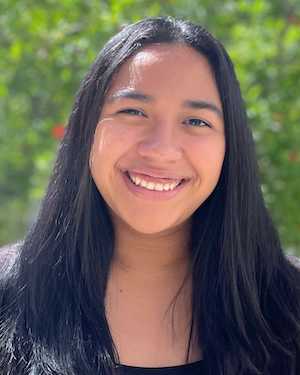
This Summer with the Community ⟩
August 12, 2022, by Andrea
Community Diversity Getting Involved
Throughout this summer I was able to volunteer in the Vivir con Diabetes and Vivir con Dolor programs. Alongside the guidance and leadership of current OT residents Daniela Flores-Madriaga and Elaina Rodriguez Garza, we were able to reach Spanish-speaking community members to help educate those with chronic conditions.
During my time as a volunteer, I helped lead discussions, exercise activities, and educate about habits and routines to participants. The education and culturally sensitive strategies through a lifestyle redesign lens provided by Daniela and Eliana helped support the journeys of participants with diabetes and chronic pain.
Daniela shares her experience with Vivir Con Diabetes as a rewarding experience that has shaped the way she interacts with chronic conditions. One of the biggest lessons she learned in facilitating these classes was to be attentive to the needs expressed by the participants. She found that “in order to make an impact in their lives, I had to provide strategies that were reasonable and applicable to fit their routines, habits, and roles.”
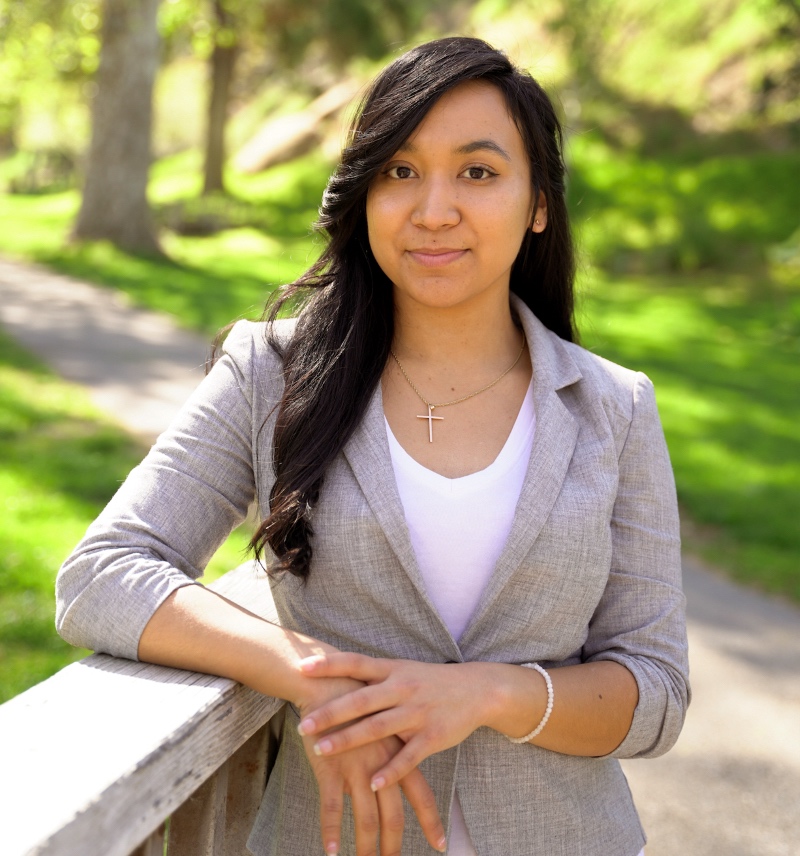
Elaina Rodriguez Garza
Since 2019, Elaina has volunteered to be a part of Vivir con Diabetes. Like myself and Daniela have expressed Eliana has found fulfillment in the program. “Not only is it an opportunity for me as a facilitator to connect with community members, but it is an opportunity to facilitate new connections between community members and create a space for them to bond over shared experiences living with diabetes and navigating problem-solving barriers around their health,” Elaina shares.
What is unique about the classes is the accessibility for community members to ask facilitators slightly more tailored questions they may not be able to ask in their primary care appointments. The tight community within these classes is something I found beneficial not only to myself as a volunteer but to participants as well. For example, during one of our classes on physical activity, I modeled examples of low-intensity exercises and lead a group discussion on participants’ current physical activity. In our discussion, a participant expressed their desire to walk more but is limited due to their arthritis. Another participant shared another program offered by the wellness center that can help their concern with exercising. Such interaction demonstrates the collaborative community fostered through the program.
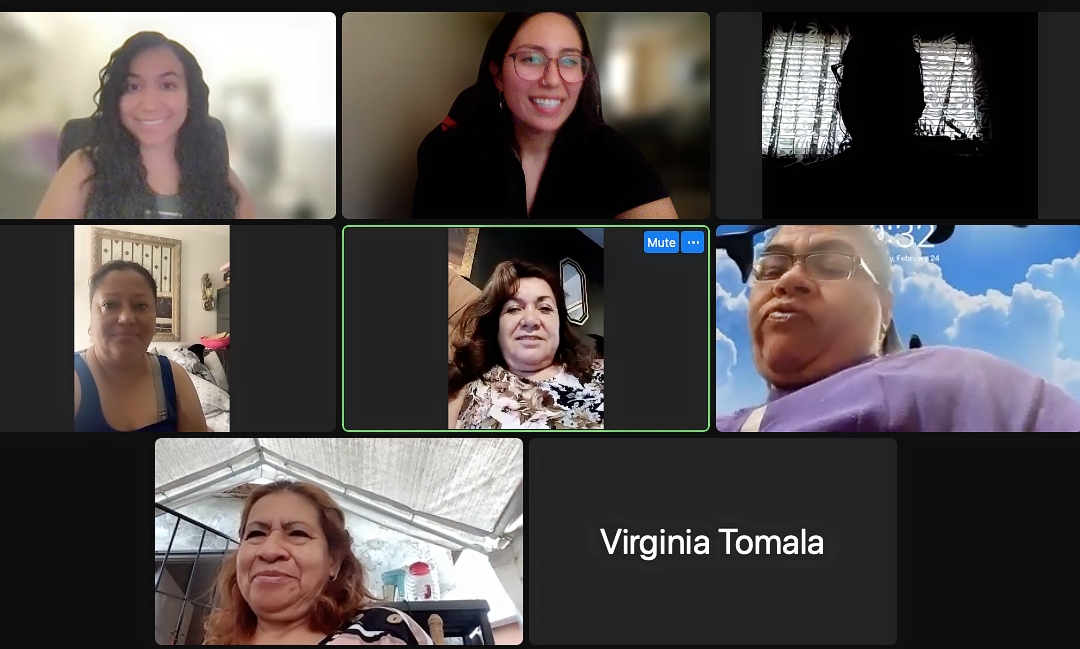
Being a part of this program this summer was a learning experience, one that allowed me to observe OT in practice and for us to tangibly serve our community.
⋯

So What Now? ⟩
July 29, 2022, by Andrea
Classes First-Gen Getting Involved What are OS/OT?
So you just discovered OT. Maybe your overly excited roommate shared with you the major or you heard about the amazing occupational science minor classes, like Creativity Workshop from a classmate. No matter how you discovered OT, the field piqued your interest.
Now you may ask yourself, how can I learn more about OT and/or get involved at USC as an undergraduate student? Well, here are some ways you can do just that!
Pre-OT Club
The Pre-OT Club is a great way to learn more about OT through presentations, networking opportunities and guidance from current OT faculty members. The club is open to all USC undergraduate students interested in OT. From collaborations with other health profession clubs on campus to providing advisement for applying to OT graduate school, the Pre-OT club explores ways to dwell deeper into the field of OT.
OS Minor
Whether you have extra units, are ambitious to pick up a minor or are committed to applying to OT graduate school, pursuing an OS minor may be the right choice for you. Minoring in OS prepares you for the career of OT as well as exploring its uniqueness and versatility. Classes like Doing Social Justice and Creating a Sustainable Lifestyle are some examples of such versatility and how anyone can find their path to OT. I never miss an opportunity to recommend an OS class to my friends looking for a fulling class. One of my favorites to recommend is OT 100: THRIVE: Foundations of Well-Being. I took OT 100 online as a freshman and was able to foster vulnerability with my small group as we explored what it meant to thrive in all aspects of life. It’s a great course to learn more about well-being from an OT lens!
Volunteering
Getting hands-on experience is a great way to further your understanding of OT and the daily tasks of a therapist. Because of the many settings OTs can work in, consider volunteering at various sites and/or with different populations/communities. Click here to find a site!
Networking
The “Trojan Family” doesn’t just describe the relationships you build with other USC students, but also the relationships between faculty and students. Consider conducting an informational interview with a faculty member. After a coffee chat or zoom call, speaking with a current OT professional can provide you with relevant information about working in OT, expand your knowledge of the unique pathways, and provide guidance to your journey in OT. One of the ways I was able to network with USC Chan alumn was through the Trojan Network. During my time in the first-generation mentorship program, I was able to connect with current OTs who shared with me their journey to OT and her advice. Alum, Dr. Joyce Yoo, shared with me the importance of getting to know my colleagues and peers “as they are peers as they too are doors of future opportunities.”
In short, your journey to OT doesn’t start at the graduate level! The opportunities here at USC allow you to pursue OT at any point in your undergraduate experience.
As an undergraduate student myself, a rising junior in the BS-OTD program, I love to talk to other students about my passion for OT and always pitch the idea of exploring OT for themselves. If you need any more convincing, let’s have a chat!
⋯






